
Dec 16, 2016 | Focolare Worldwide
Sonia is from Slovacchia; she’s five and goes to nursery school. One day she told her mom that she had found a friend in school. “And what’s her name?” “I don’t know, she doesn’t speak. I approached her since I saw she was always alone and nobody wanted to play with her.” Sonia’s mom usually fetches her for lunch. But the teacher said: “Let her stay! She helps us with a gypsy girl who at first did not speak at all and now, thanks to her, has started to talk and cooperate with the others.” When she returned home her mother asked: “Did your friend say something to you?” “No, but she smiles when I tell her I like her.” Her mother remained silent. And the child said: “You know, love warms up each one of us.” 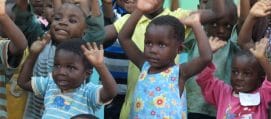 From Cameroon Kevin wrote: «One day in school during the break I asked one of my schoolmates if he had anything to eat. I was hungry and had nothing. He refused. The day after, I brought a piece of bread and when he came to ask me, I in turn refused. The next day, upon throwing the love dice it said: “Love your enemies.” I thought of that classmate. In school I tried to speak to him but he didn’t answer. So I sat in front of the house, waiting for him and when he came by, I called out to him, went up to him and when I asked why I shouldn’t speak to him anymore, he answered: “You refused to share with me the bread you had.” I immediately said, “Let’s make up!”and handed him some guava fruit I had with me. And so we started to talk and became friends again.»
From Cameroon Kevin wrote: «One day in school during the break I asked one of my schoolmates if he had anything to eat. I was hungry and had nothing. He refused. The day after, I brought a piece of bread and when he came to ask me, I in turn refused. The next day, upon throwing the love dice it said: “Love your enemies.” I thought of that classmate. In school I tried to speak to him but he didn’t answer. So I sat in front of the house, waiting for him and when he came by, I called out to him, went up to him and when I asked why I shouldn’t speak to him anymore, he answered: “You refused to share with me the bread you had.” I immediately said, “Let’s make up!”and handed him some guava fruit I had with me. And so we started to talk and became friends again.»  From Italy, Marco recounts: «One day at the nursery, the children made fun of me because I’m fat. I was sorry they did that and sometimes I cried. So I went to the Nun and instead of accusing them I told her of my sufferings. I understood that I had to forgive them and did so, because a Gen4 is one who, like Jesus, forgives and loves all.» Carmen lives in a slum at the outskirts of Mexico City. Often in the evening her uncles returns home drunk. Carmen is scared and hides herself. «But the other evening I didn’t hide – she says – I waited for him and helped him enter. I wasn’t scared because I knew that Our Lady takes care of me.» E Bartek, from Poland: «At the children’s party I received a gift from Teacher Ela, a chocolate bar and a lollipop. In my class there a girl called Asia, whom nobody likes. I remembered that in the morning upon throwing the dice, it said: “Love your enemies” and so I gave Asia the lollipop and half of the chocolate. She was surprised and thanked me, and then left. Now we have become big friends.» «In the centre of Naples (Italy), the “Baby Jesus” we make and offer to people is really selling quickly and many gather around the stand if only to say that they wish to join the initiative. A teacher, an agnostic, who has many problems, held Baby Jesus in her hands and looked at it: “This will be my Christmas!” A child ran home, emptied out his piggy bank and came with all his coins to buy his own Baby Jesus.» By the Gen4 Centres
From Italy, Marco recounts: «One day at the nursery, the children made fun of me because I’m fat. I was sorry they did that and sometimes I cried. So I went to the Nun and instead of accusing them I told her of my sufferings. I understood that I had to forgive them and did so, because a Gen4 is one who, like Jesus, forgives and loves all.» Carmen lives in a slum at the outskirts of Mexico City. Often in the evening her uncles returns home drunk. Carmen is scared and hides herself. «But the other evening I didn’t hide – she says – I waited for him and helped him enter. I wasn’t scared because I knew that Our Lady takes care of me.» E Bartek, from Poland: «At the children’s party I received a gift from Teacher Ela, a chocolate bar and a lollipop. In my class there a girl called Asia, whom nobody likes. I remembered that in the morning upon throwing the dice, it said: “Love your enemies” and so I gave Asia the lollipop and half of the chocolate. She was surprised and thanked me, and then left. Now we have become big friends.» «In the centre of Naples (Italy), the “Baby Jesus” we make and offer to people is really selling quickly and many gather around the stand if only to say that they wish to join the initiative. A teacher, an agnostic, who has many problems, held Baby Jesus in her hands and looked at it: “This will be my Christmas!” A child ran home, emptied out his piggy bank and came with all his coins to buy his own Baby Jesus.» By the Gen4 Centres
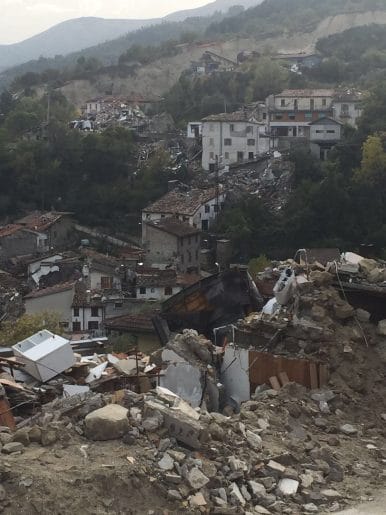
Dec 14, 2016 | Focolare Worldwide
 Christmas is also on the way for the displaced victims of the earthquake in Central Italy. We know that you are working in during this after phase of the earthquake. What are you doing? FrancescoTortorella explains: “AMU and AFN have coordinated with the Focolare Movement in Italy, to carry ahead their work during the after phase of the earthquake. Since August, there have been three site surveys in the regions that were hit, to examine the possible ways of intervening. The first intervention that we identified was that of supporting the families that run small agricultural businesses, along with the farm regions that suffered damage.” After a feasibility study, you came up with the comprehensive project. What is it? “We called it RImPresa and it consists of two activities,” Paola Iacovone explains. “The first activity, which will be carried out by the Abbraccio Planetario from Castelli Romani, Italy, and the Bread and Fish Foundation from Ascoli Piceno, Italy, will consist of 4 joint purchasing groups which, through a web portal, will purchase products from the small businesses that were hit by the earthquake, which will provide long-term support to entire families.” There are also many agricultural businesses that were damaged by the earthquake and are finding it hard to start up again. Are you also working on this front? “Yes. The Italian Associazione Italiana Imprenditori per un Economia di Comunione (AIPEC), which we work with is promoting the second activity of RImPresa,” Tortorella adds, “which is only concerned with supporting families with small agricultural and breeding businesses, by providing machinery or small infrastructures. All of it is carried out in coordination with the Italian Civil Protection Agency that has the full picture of the businesses that were damaged and of the assistance that is distributed.” “We’re a small drop in the ocean along with many others,” Paola concludes. “We’ve received many contributions up until now part of which had been destined to help finance the RImPresa Project. There are still funds to carry out other projects that will begin in the next few months. The contributions continue to arrive, so this fund will probably grow in the next few weeks.” Best wishes for a happy Christmas! Gustavo Clariá To collaborate:
Christmas is also on the way for the displaced victims of the earthquake in Central Italy. We know that you are working in during this after phase of the earthquake. What are you doing? FrancescoTortorella explains: “AMU and AFN have coordinated with the Focolare Movement in Italy, to carry ahead their work during the after phase of the earthquake. Since August, there have been three site surveys in the regions that were hit, to examine the possible ways of intervening. The first intervention that we identified was that of supporting the families that run small agricultural businesses, along with the farm regions that suffered damage.” After a feasibility study, you came up with the comprehensive project. What is it? “We called it RImPresa and it consists of two activities,” Paola Iacovone explains. “The first activity, which will be carried out by the Abbraccio Planetario from Castelli Romani, Italy, and the Bread and Fish Foundation from Ascoli Piceno, Italy, will consist of 4 joint purchasing groups which, through a web portal, will purchase products from the small businesses that were hit by the earthquake, which will provide long-term support to entire families.” There are also many agricultural businesses that were damaged by the earthquake and are finding it hard to start up again. Are you also working on this front? “Yes. The Italian Associazione Italiana Imprenditori per un Economia di Comunione (AIPEC), which we work with is promoting the second activity of RImPresa,” Tortorella adds, “which is only concerned with supporting families with small agricultural and breeding businesses, by providing machinery or small infrastructures. All of it is carried out in coordination with the Italian Civil Protection Agency that has the full picture of the businesses that were damaged and of the assistance that is distributed.” “We’re a small drop in the ocean along with many others,” Paola concludes. “We’ve received many contributions up until now part of which had been destined to help finance the RImPresa Project. There are still funds to carry out other projects that will begin in the next few months. The contributions continue to arrive, so this fund will probably grow in the next few weeks.” Best wishes for a happy Christmas! Gustavo Clariá To collaborate:
| Azione per un Mondo Unito ONLUS (AMU) |
Azione per Famiglie Nuove ONLUS (AFN) |
| IBAN: IT16 G050 1803 2000 0000 0120 434 at Banca Popolare Etica |
IBAN: IT55 K033 5901 6001 0000 0001 060 at Banca Prossima |
| Codice SWIFT/BIC: CCRTIT2184D |
Codice SWIFT/BIC: BCITITMX |
| CAUSE : Emergenza terremoto (Italia) |
| All contributions that are deposited in these two accounts for this cause will be jointly administered by AMU and AFN. Except for cash donations, Italian taxpayers can get deductions and allowances from income, in accordance with the regulations for non-profit organizations, to up to 10% of income and the € 70,000.00 annual limit. Tax benefits are provided in many European Union countries and other countries of the world in accordance with local regulations. |
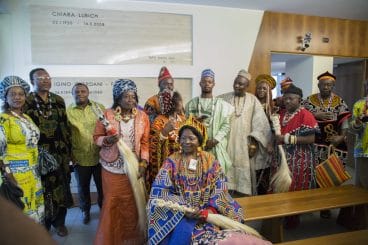
Dec 12, 2016 | Focolare Worldwide
 “Through the Focolare Movement, God has visited the Bangwa people (…).They have lived the pact of mutual love with the Bangwa people and taught them the spirituality of unity and universal brotherhood (…).They have reduced the infant mortality within these years from close to 90% to almost zero; they have tirelessly worked hard to eliminate the deadly Tsetse Fly that made Fontem look like the valley of death; thousands of Lebialem people would not have had a good education without them; good health facilities have been at our door steps all these years (…).Now is the time to celebrate the love of God for all the Lebialem people”. These quotes are taken from the letter written by Mgsr. Andrew Nkea, Bishop of Mamfe to announce the year 2016 as a Jubilee year of thanksgiving to God for the arrival of the Focolare Movement amongst the Bangwa people. In this letter, one finds a prayer to be recited daily together the Bishop’s words that highlight the most important moments of these 50 years of history and recall the protagonists and all those who gave their lives towards them. It also expresses the feelings of the Fons – the kings of the territories of this region -,of persons holding positions of responsibility and of the entire population.
“Through the Focolare Movement, God has visited the Bangwa people (…).They have lived the pact of mutual love with the Bangwa people and taught them the spirituality of unity and universal brotherhood (…).They have reduced the infant mortality within these years from close to 90% to almost zero; they have tirelessly worked hard to eliminate the deadly Tsetse Fly that made Fontem look like the valley of death; thousands of Lebialem people would not have had a good education without them; good health facilities have been at our door steps all these years (…).Now is the time to celebrate the love of God for all the Lebialem people”. These quotes are taken from the letter written by Mgsr. Andrew Nkea, Bishop of Mamfe to announce the year 2016 as a Jubilee year of thanksgiving to God for the arrival of the Focolare Movement amongst the Bangwa people. In this letter, one finds a prayer to be recited daily together the Bishop’s words that highlight the most important moments of these 50 years of history and recall the protagonists and all those who gave their lives towards them. It also expresses the feelings of the Fons – the kings of the territories of this region -,of persons holding positions of responsibility and of the entire population. 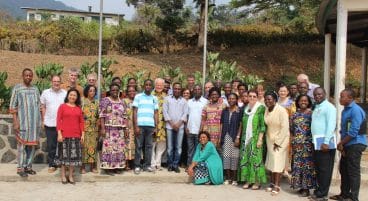 The first focolarini doctors arrived in Fontem in 1966. The state of emergency of the Bangwa people became a priority for the whole Focolare Movement. Chiara Lubich paid her first visit to Fontem that same year and she was given a great welcome by the king, Fon Defang, important personalities and the whole population. She visited Fontem another two times. In May 2000, when she addressed all the Bangwa, gathered in the wide open space in front of the Fon’s palace, she said: “I feel that I cannot leave you without having made a solemn pact with you. A strong and binding pact of mutual love. It is a sort of oath by which we promise to be always fully at peace with one another and to be always ready to make peace and start again whenever our promise is broken”. This jubilee year will come to its end with a solemn celebration to be held from the 14 to 17 December 2016. The Fons and other heads of institutions have been actively involved in the preparation of this celebration, which was presented to the Prime Minister, Philémon Yang at Yaoundé last October. Since then, it is being recognized as a national event. The programme includes: the success of Our Lady Seat of Wisdom College, which, with 500 students per year, is among the best five pre-university institutions in the anglophone Cameroonian system; life and work experiences of the Focolare Movement in Fontem; an International Conference on Interreligious Dialogue between Christianity and the African Traditional Religion, in these last 50 experience among the Bangwa people. Today, the inculturation of Christianity seems to have become more obvious. Martin Nkafu, the African philosopher and theologian, director of the department of Human and Social Sciences in the International Research Area at the Pontifical Lateran University in Rome, says: “Christianity has not changed the people’s mentality; a Bangwa who adheres to Christ keeps his personality, his culture, and has an integrated vision of reality; and as Pope John Paul II said in Nairobi in 1982, this allows him to be authentically African and deeply Christian”.
The first focolarini doctors arrived in Fontem in 1966. The state of emergency of the Bangwa people became a priority for the whole Focolare Movement. Chiara Lubich paid her first visit to Fontem that same year and she was given a great welcome by the king, Fon Defang, important personalities and the whole population. She visited Fontem another two times. In May 2000, when she addressed all the Bangwa, gathered in the wide open space in front of the Fon’s palace, she said: “I feel that I cannot leave you without having made a solemn pact with you. A strong and binding pact of mutual love. It is a sort of oath by which we promise to be always fully at peace with one another and to be always ready to make peace and start again whenever our promise is broken”. This jubilee year will come to its end with a solemn celebration to be held from the 14 to 17 December 2016. The Fons and other heads of institutions have been actively involved in the preparation of this celebration, which was presented to the Prime Minister, Philémon Yang at Yaoundé last October. Since then, it is being recognized as a national event. The programme includes: the success of Our Lady Seat of Wisdom College, which, with 500 students per year, is among the best five pre-university institutions in the anglophone Cameroonian system; life and work experiences of the Focolare Movement in Fontem; an International Conference on Interreligious Dialogue between Christianity and the African Traditional Religion, in these last 50 experience among the Bangwa people. Today, the inculturation of Christianity seems to have become more obvious. Martin Nkafu, the African philosopher and theologian, director of the department of Human and Social Sciences in the International Research Area at the Pontifical Lateran University in Rome, says: “Christianity has not changed the people’s mentality; a Bangwa who adheres to Christ keeps his personality, his culture, and has an integrated vision of reality; and as Pope John Paul II said in Nairobi in 1982, this allows him to be authentically African and deeply Christian”. Among the initiatives achieved during this year, one finds the Fons’ pilgrimage to Rome. They came last September to celebrate the Jubilee of Mercy with Pope Francis and to visit the places of Mafua Ndem, “the queen sent by God”, as Fon Lucas Njifua of Fontem called Chiara Lubich on her last visit to Cameroon. A competition, entitled “God’s intervention in the history and life of the Nweh Mundani people” has also been organized and promoted throughout the year among students in all primary and secondary schools. 4000 people were involved in this project, which included poetry, songs, literary compositions and quizes; 700 students from 21 schools participated through their various works. This event mobilizes and brings together even the Bangwa people who during the last years left Cameroon. A Development Commission, with members in Cameroon and in other countries, has started to dialogue with State bodies in view of concrete actions regarding education, health, youth and women’s status. This 50th anniversary celebration is being followed by the Focolare Community world-wide. The president, Maria Voce has closely accompanied the preparation for it, while Jesús Morán and the Central council members responsible for Africa will be present in Fontem. Sources: Press releases (SIF)
Among the initiatives achieved during this year, one finds the Fons’ pilgrimage to Rome. They came last September to celebrate the Jubilee of Mercy with Pope Francis and to visit the places of Mafua Ndem, “the queen sent by God”, as Fon Lucas Njifua of Fontem called Chiara Lubich on her last visit to Cameroon. A competition, entitled “God’s intervention in the history and life of the Nweh Mundani people” has also been organized and promoted throughout the year among students in all primary and secondary schools. 4000 people were involved in this project, which included poetry, songs, literary compositions and quizes; 700 students from 21 schools participated through their various works. This event mobilizes and brings together even the Bangwa people who during the last years left Cameroon. A Development Commission, with members in Cameroon and in other countries, has started to dialogue with State bodies in view of concrete actions regarding education, health, youth and women’s status. This 50th anniversary celebration is being followed by the Focolare Community world-wide. The president, Maria Voce has closely accompanied the preparation for it, while Jesús Morán and the Central council members responsible for Africa will be present in Fontem. Sources: Press releases (SIF)
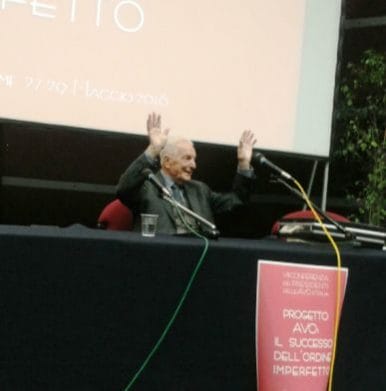
Dec 5, 2016 | Focolare Worldwide, Senza categoria
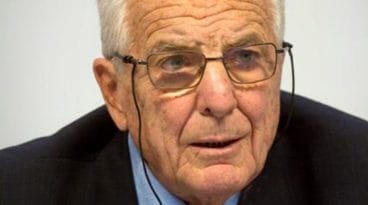 Erminio Longhini was born in Milan, Italy, on July 19, 1928. After his marriage with Nuccia, he and his wife had three children: Michela, Matteo and Stefano. While they were still university students, Nuccia and Erminio were determined to keep the human person at the centre of their professional life. “Ever since I was a child,” Erminio himself admits, “I felt strongly drawn to the Virgin Mary.” Perhaps this explains his filial devotion to “so beautiful a Mother” that even though he was buried in professional responsibilities, he offered to accompany the sick on their journeys to Lourdes. He was serious, scrupulous, demanding and went through years of hard sacrifice working from morning until deep into the night serving the sick and doing research. But his soul was also searching. He and Nuccia felt the need for a spirituality that could accompany the life of their family. They found their answer in the Focolare, in God-Love to whom Erminio felt called to give himself completely, and to serve all the brothers and sisters he would meet. He became a married focolarino. Thanks to generous contributions he set up an internal medicine department with modern equipment and welcomed young graduates from Italy and developing countries. He managed to engage colleagues and nurses until the medical division he directed became one of the best in both technical quality and in human relationships, with hundreds of published research projects. Erminio understood more and more that it was not enough to care for the patient, but for the human being.
Erminio Longhini was born in Milan, Italy, on July 19, 1928. After his marriage with Nuccia, he and his wife had three children: Michela, Matteo and Stefano. While they were still university students, Nuccia and Erminio were determined to keep the human person at the centre of their professional life. “Ever since I was a child,” Erminio himself admits, “I felt strongly drawn to the Virgin Mary.” Perhaps this explains his filial devotion to “so beautiful a Mother” that even though he was buried in professional responsibilities, he offered to accompany the sick on their journeys to Lourdes. He was serious, scrupulous, demanding and went through years of hard sacrifice working from morning until deep into the night serving the sick and doing research. But his soul was also searching. He and Nuccia felt the need for a spirituality that could accompany the life of their family. They found their answer in the Focolare, in God-Love to whom Erminio felt called to give himself completely, and to serve all the brothers and sisters he would meet. He became a married focolarino. Thanks to generous contributions he set up an internal medicine department with modern equipment and welcomed young graduates from Italy and developing countries. He managed to engage colleagues and nurses until the medical division he directed became one of the best in both technical quality and in human relationships, with hundreds of published research projects. Erminio understood more and more that it was not enough to care for the patient, but for the human being.  In collaboration with the Catholic University he carried out research in 40 hospitals, which revealed that patients’ greatest handicap was feeling dependent on others: “Why not spend a bit of our time building a human relationship, a loving exchange between us and our patients?” With some difficulty and many complications, Erminio managed to come up with the first 30 volunteers to care for the sick beyond there purely medical needs. “What did I try to convey to them?” He explains: “What I had learned from Chiara Lubich: reciprocity.” The Hospital Volunteers Association emerged from that first group, in 1976. His work was encouraged not only by Chiara Lubich, but by Cardinals Colombo and Martini from Milan, and by John Paul II himself who, during an audience for 7,000 volunteers, said to Erminio: “I’m pleased, tell your friends to continue like this.” Following the painful death of his wife, Erminio’s meekness and abandonment to God deepened. Forced to have more frequent medical visits and transfusions, he confided: “I feel like an autumn leaf on a windy day. It might seem more desirable that the evening of life should come. Then, I realize that there’s a temptation hiding there, and in the morning I realize that another day is being given to me and that life is living the present moment, counting on God’s mercy for the past and for the hopes of the future.” In the meantime, the Hospital Volunteers Association spread all over Italy and now has 25,000 volunteers in 250 hospitals. Because of his commitment, in 2004, Erminio was awarded the Gold Medal of Merit Award for Health by the President of Italy. Until the end Erminio continued to offer spiritual encouragement to the volunteers through video messages and writings. In the final months his medical condition was not reassuring, but he was serene: “I thank God because I had much more in my life than what I would have imagined. I thank the Blessed Mother, and every night I finish my prayers saying to her: “Let it be You to come and get me, and it will be pure joy. I’ll hear You and see You!” He died on November 4th. Everybody that knew and loved him, are certain that it happened just as he had desired in payment for a life seeped in the Gospel. The current president of the association writes: “A great man has left us, a man who was able to perceive with his sensitivity, humanity and faith the invisible essence that eye cannot see, nor even the mind. But he doesn’t leave us alone, each of us will meet him in their service to others if we manage to allow all the wisdom, knowledge and depth that Erminio always conveyed and taught to bear fruit.” Anna Friso
In collaboration with the Catholic University he carried out research in 40 hospitals, which revealed that patients’ greatest handicap was feeling dependent on others: “Why not spend a bit of our time building a human relationship, a loving exchange between us and our patients?” With some difficulty and many complications, Erminio managed to come up with the first 30 volunteers to care for the sick beyond there purely medical needs. “What did I try to convey to them?” He explains: “What I had learned from Chiara Lubich: reciprocity.” The Hospital Volunteers Association emerged from that first group, in 1976. His work was encouraged not only by Chiara Lubich, but by Cardinals Colombo and Martini from Milan, and by John Paul II himself who, during an audience for 7,000 volunteers, said to Erminio: “I’m pleased, tell your friends to continue like this.” Following the painful death of his wife, Erminio’s meekness and abandonment to God deepened. Forced to have more frequent medical visits and transfusions, he confided: “I feel like an autumn leaf on a windy day. It might seem more desirable that the evening of life should come. Then, I realize that there’s a temptation hiding there, and in the morning I realize that another day is being given to me and that life is living the present moment, counting on God’s mercy for the past and for the hopes of the future.” In the meantime, the Hospital Volunteers Association spread all over Italy and now has 25,000 volunteers in 250 hospitals. Because of his commitment, in 2004, Erminio was awarded the Gold Medal of Merit Award for Health by the President of Italy. Until the end Erminio continued to offer spiritual encouragement to the volunteers through video messages and writings. In the final months his medical condition was not reassuring, but he was serene: “I thank God because I had much more in my life than what I would have imagined. I thank the Blessed Mother, and every night I finish my prayers saying to her: “Let it be You to come and get me, and it will be pure joy. I’ll hear You and see You!” He died on November 4th. Everybody that knew and loved him, are certain that it happened just as he had desired in payment for a life seeped in the Gospel. The current president of the association writes: “A great man has left us, a man who was able to perceive with his sensitivity, humanity and faith the invisible essence that eye cannot see, nor even the mind. But he doesn’t leave us alone, each of us will meet him in their service to others if we manage to allow all the wisdom, knowledge and depth that Erminio always conveyed and taught to bear fruit.” Anna Friso
Nov 28, 2016 | Focolare Worldwide
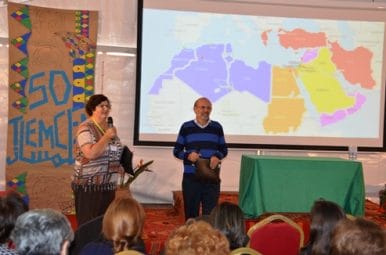
Nov 26, 2016 | Focolare Worldwide
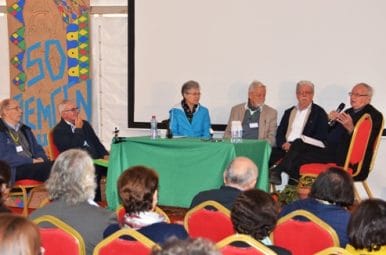 The event was attended by 90 Muslims and Christians from Jordan, Syria, Libya, Greece, Tunisia, France, Italy, Switzerland, Burkina Faso, Canada and Algeria. Four topics were discussed: suffering in light of God; the divine inspiration on unity in Chiara Lubich; the challenges and problems for the contemporary Muslim; being builders of universal brotherhood. The most repeated word at the conference was “together” which highlighted the experience that has been maturing for years in the heart of the Focolare Movement: Christians and Muslims living the ideal of unity together, according to the charism given by God to Chiara Lubich fully accepting their individual identities and differences. Chiara’s deep mystical experience from the summer of 1949 was introduced by Jésus Morán and welcomed by the participants in an atmosphere of deep fraternity: “Chiara takes us into the God of Oneness, beyond the differences of single religions,” said Jalleh who is a Sciite from Iran. Someone else remarked: “Chiara uses images that are understandable when talking about the Trinity.” Rita Moussallem and Roberto Catalano, who work for the Movement’s interreligious dialogue, presented the Focolare’s experience with different religions around the world: “You could say that God manifested himself and gave us all a bit of his light,” said one participant. After an immersion in the unity that is born from the Christian context, the focus shifted to Islam. The Algerian-Tunisian scholar Adnane Mokrani, who teaches as the Pontifical Institute of Arab and Islamist Studies at Rome (PISAI), talked about the crisis that Islam is going through today. She invited the audience not to allow itself to be taken in by the different conspiracy theories, not to blame others, but to return to the discussion table, without being discouraged: because “the majority of the people want peace, perhaps an inactive majority … But it’s up to us,” she emphasized, “an active minority to do all that we can to arouse that majority. It’s our task.”
The event was attended by 90 Muslims and Christians from Jordan, Syria, Libya, Greece, Tunisia, France, Italy, Switzerland, Burkina Faso, Canada and Algeria. Four topics were discussed: suffering in light of God; the divine inspiration on unity in Chiara Lubich; the challenges and problems for the contemporary Muslim; being builders of universal brotherhood. The most repeated word at the conference was “together” which highlighted the experience that has been maturing for years in the heart of the Focolare Movement: Christians and Muslims living the ideal of unity together, according to the charism given by God to Chiara Lubich fully accepting their individual identities and differences. Chiara’s deep mystical experience from the summer of 1949 was introduced by Jésus Morán and welcomed by the participants in an atmosphere of deep fraternity: “Chiara takes us into the God of Oneness, beyond the differences of single religions,” said Jalleh who is a Sciite from Iran. Someone else remarked: “Chiara uses images that are understandable when talking about the Trinity.” Rita Moussallem and Roberto Catalano, who work for the Movement’s interreligious dialogue, presented the Focolare’s experience with different religions around the world: “You could say that God manifested himself and gave us all a bit of his light,” said one participant. After an immersion in the unity that is born from the Christian context, the focus shifted to Islam. The Algerian-Tunisian scholar Adnane Mokrani, who teaches as the Pontifical Institute of Arab and Islamist Studies at Rome (PISAI), talked about the crisis that Islam is going through today. She invited the audience not to allow itself to be taken in by the different conspiracy theories, not to blame others, but to return to the discussion table, without being discouraged: because “the majority of the people want peace, perhaps an inactive majority … But it’s up to us,” she emphasized, “an active minority to do all that we can to arouse that majority. It’s our task.”  She and Adnane Mokrani answered several spontaneous questions from the audience. Scholar of Comparative Religions at the University of Amman, Jordan, Amer Hafi said: “God is great[er] means that he is greater than our fears, than our problems and misfortunes: God is the key of our hope and of our life. But unfortunately this invocation has become a death signal.” The presence of Emeritus Archbishop Henri Teissier with his in-depth knowledge of Islam was deeply appreciate, along with Bishop of Orano, Jean Paul Vesco. He explained: “the friendship founded on spiritual communion is the apex of dialogue among the religions and their differences.” The young Algerian Muslims from the Focolare Movement provided music and song. The visit to the mausoleum of mystic Sidi Boumediène, which was presented by Algerian scholar Dr Sari-Ali Hikmet, immersed the conference members in the spirituality, art and culture of Islam. This was followed by a visit to the El Mechouar Museum, a palace from the Zianide Dynasty, and a visit to the Great Mosque and to the modern Andalusi Centre of Studies. Before leaving Tlemcen, Jesús Morán commented on the experience: “It wasn’t only getting along, but of being one, sharing the same experience of God, of sharing what we have deepest inside of us.” Jean-Louis Marechal
She and Adnane Mokrani answered several spontaneous questions from the audience. Scholar of Comparative Religions at the University of Amman, Jordan, Amer Hafi said: “God is great[er] means that he is greater than our fears, than our problems and misfortunes: God is the key of our hope and of our life. But unfortunately this invocation has become a death signal.” The presence of Emeritus Archbishop Henri Teissier with his in-depth knowledge of Islam was deeply appreciate, along with Bishop of Orano, Jean Paul Vesco. He explained: “the friendship founded on spiritual communion is the apex of dialogue among the religions and their differences.” The young Algerian Muslims from the Focolare Movement provided music and song. The visit to the mausoleum of mystic Sidi Boumediène, which was presented by Algerian scholar Dr Sari-Ali Hikmet, immersed the conference members in the spirituality, art and culture of Islam. This was followed by a visit to the El Mechouar Museum, a palace from the Zianide Dynasty, and a visit to the Great Mosque and to the modern Andalusi Centre of Studies. Before leaving Tlemcen, Jesús Morán commented on the experience: “It wasn’t only getting along, but of being one, sharing the same experience of God, of sharing what we have deepest inside of us.” Jean-Louis Marechal

 From Cameroon Kevin wrote: «One day in school during the break I asked one of my schoolmates if he had anything to eat. I was hungry and had nothing. He refused. The day after, I brought a piece of bread and when he came to ask me, I in turn refused. The next day, upon throwing the love dice it said: “Love your enemies.” I thought of that classmate. In school I tried to speak to him but he didn’t answer. So I sat in front of the house, waiting for him and when he came by, I called out to him, went up to him and when I asked why I shouldn’t speak to him anymore, he answered: “You refused to share with me the bread you had.” I immediately said, “Let’s make up!”and handed him some guava fruit I had with me. And so we started to talk and became friends again.»
From Cameroon Kevin wrote: «One day in school during the break I asked one of my schoolmates if he had anything to eat. I was hungry and had nothing. He refused. The day after, I brought a piece of bread and when he came to ask me, I in turn refused. The next day, upon throwing the love dice it said: “Love your enemies.” I thought of that classmate. In school I tried to speak to him but he didn’t answer. So I sat in front of the house, waiting for him and when he came by, I called out to him, went up to him and when I asked why I shouldn’t speak to him anymore, he answered: “You refused to share with me the bread you had.” I immediately said, “Let’s make up!”and handed him some guava fruit I had with me. And so we started to talk and became friends again.»  From Italy, Marco recounts: «One day at the nursery, the children made fun of me because I’m fat. I was sorry they did that and sometimes I cried. So I went to the Nun and instead of accusing them I told her of my sufferings. I understood that I had to forgive them and did so, because a Gen4 is one who, like Jesus, forgives and loves all.» Carmen lives in a slum at the outskirts of Mexico City. Often in the evening her uncles returns home drunk. Carmen is scared and hides herself. «But the other evening I didn’t hide – she says – I waited for him and helped him enter. I wasn’t scared because I knew that Our Lady takes care of me.» E Bartek, from Poland: «At the children’s party I received a gift from Teacher Ela, a chocolate bar and a lollipop. In my class there a girl called Asia, whom nobody likes. I remembered that in the morning upon throwing the dice, it said: “Love your enemies” and so I gave Asia the lollipop and half of the chocolate. She was surprised and thanked me, and then left. Now we have become big friends.» «In the centre of Naples (Italy), the “Baby Jesus” we make and offer to people is really selling quickly and many gather around the stand if only to say that they wish to join the initiative. A teacher, an agnostic, who has many problems, held Baby Jesus in her hands and looked at it: “This will be my Christmas!” A child ran home, emptied out his piggy bank and came with all his coins to buy his own Baby Jesus.» By the Gen4 Centres
From Italy, Marco recounts: «One day at the nursery, the children made fun of me because I’m fat. I was sorry they did that and sometimes I cried. So I went to the Nun and instead of accusing them I told her of my sufferings. I understood that I had to forgive them and did so, because a Gen4 is one who, like Jesus, forgives and loves all.» Carmen lives in a slum at the outskirts of Mexico City. Often in the evening her uncles returns home drunk. Carmen is scared and hides herself. «But the other evening I didn’t hide – she says – I waited for him and helped him enter. I wasn’t scared because I knew that Our Lady takes care of me.» E Bartek, from Poland: «At the children’s party I received a gift from Teacher Ela, a chocolate bar and a lollipop. In my class there a girl called Asia, whom nobody likes. I remembered that in the morning upon throwing the dice, it said: “Love your enemies” and so I gave Asia the lollipop and half of the chocolate. She was surprised and thanked me, and then left. Now we have become big friends.» «In the centre of Naples (Italy), the “Baby Jesus” we make and offer to people is really selling quickly and many gather around the stand if only to say that they wish to join the initiative. A teacher, an agnostic, who has many problems, held Baby Jesus in her hands and looked at it: “This will be my Christmas!” A child ran home, emptied out his piggy bank and came with all his coins to buy his own Baby Jesus.» By the Gen4 Centres


 “Through the Focolare Movement, God has visited the Bangwa people (…).They have lived the pact of mutual love with the Bangwa people and taught them
“Through the Focolare Movement, God has visited the Bangwa people (…).They have lived the pact of mutual love with the Bangwa people and taught them 



